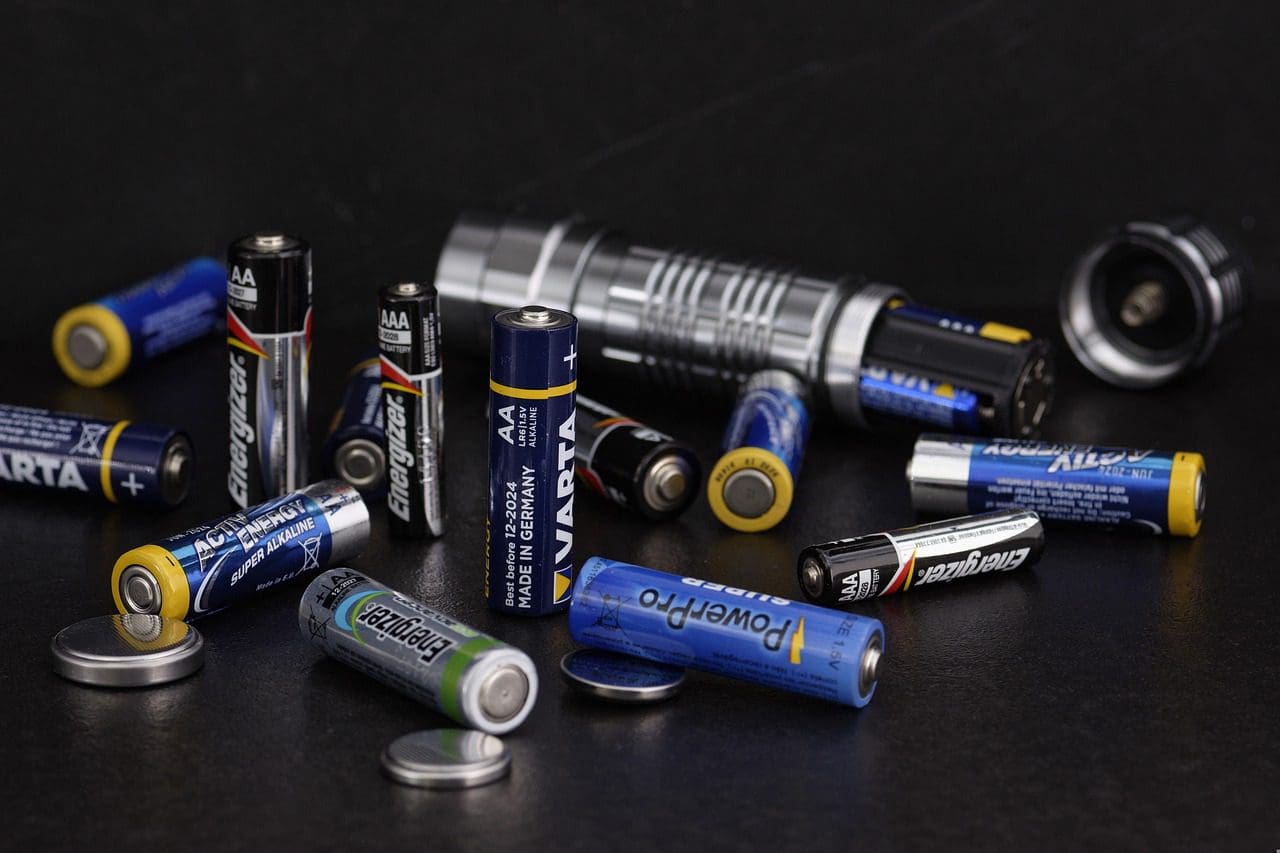5 elements make the world-fire, water, earth, air, and Space. These five elements are responsible for making this world.
If we talk about the elements discovered by the scientists that exist on Earth, we will see as they were discovered, they were arranged in a periodic table.
Alkali and alkaline earth metals are two of the parts in which the periodic table is made. But they’re different from each other.
Key Takeaways
- Alkali refers to a basic substance that can neutralize acid, while alkaline refers to a substance with a pH greater than 7.
- Alkali is a subset of alkaline, as all alkalis are alkaline, but not all alkaline substances are alkalis.
- Alkalis are used in various applications such as cleaning, water treatment, and manufacturing, while alkaline substances are present in many natural materials such as soil, water, and minerals.
Alkali vs Alkaline
Alkali refers to a group of highly reactive chemical compounds that dissolve in water to form a basic or alkaline solution and is used in various industrial processes such as soap-making, food processing, and water treatment. Alkaline refers to a substance or solution that has a pH greater than 7.

The alkali metals are group 1 of the periodic table. Elements like sodium, lithium, and caesium have an extra electron in their valence shell. The compounds they form with other elements are caller alkali compounds.
Like NaCl, where Na is sodium, and Cl is chloride, they together form a bond, and that Compound will be known as an alkali compound.
The Alkaline earth metal makes group 2 of the periodic table. Elements like calcium and magnesium also make hydroxide ions when added to water.
Also, Alkaline earth metal has higher pH values if we talk about the pH value. We can simply denote with >7 for a better understanding.
Comparison Table
| Parameters of Comparison | Alkali | Alkaline |
|---|---|---|
| Definition | In the periodic table, Alkali metals are the group 1 elements. | Alkaline is the group 2 elements of the periodic table. |
| Elements | Some elements like sodium, lithium, caesium, potassium, are alkali metals. | Elements like calcium, magnesium, rubidium, are alkaline earth metal. |
| Valence electrons | In alkali metals, the last valence shell has one electron. | In alkaline metals, the last shell has two electrons. |
| Formation | Alkali metals form +1 cations. | Alkaline forms +2 cations. |
| Ionisation energy | If we talk about elements in group 1, the ionisation energy is low. | Alkaline has higher ionisation energy. |
What is Alkali?
Our world is made up of elements. Some exist in sharing electrons with someone making ionic bonds, and some make covalent bonds fulfilling each other’s octet.
However, some things are common. The bonds they form are always in a stable state. And all elements strive to make bonds with someone to find stability.
Alkali metals are the group 1 element of the periodic table designed by scientists. Various periodic tables were suggested, but in 1913, the final table was considered one of the most reliable and appropriate.
Alkali metals like lithium, sodium, potassium, caesium, etc., have one thing in common. They have one election in their last shell.
This electron plays an important role in stabilising the elements. Their last electron can be used to make bonds with elements with 7 electrons in their last shell and need one more.
Like chlorine, If we see its last shell, it’s Deficit by one electron. This sodium electron can be given to chlorine to form bonds making sodium chloride.
The final stability comes when your last shell is complete. Either accept from someone or give someone. The last shell must be full to be stable.
Alkali metals have a pH of 7 and more, turning the red litmus paper into blue and showing acidity properties.
Also, alkali metals can be used to naturalize acidic reactions. These have less ionisation energy since it’s easy for them to donate one electron from their valence shell.

What is Alkaline?
The periodic table suggested in 1913 classifies elements based on their nature. You’ll see some groups that need one electron, some will need two, and some will be full as well. Group 1 is Alkali metals which tend to donate one electron to reach a stable state.
Alkaline earth metals tend to give two electrons to these elements that need exactly two elements.
Elements like calcium, beryllium, and magnesium have two electrons in their valence shell which they can donate to those who need two elements.
If we see a compound, CaO is known as calcium oxide. Here, oxygen has 6 electrons in its valence shell and needs two more to complete its octet.
However, at the same time, the calcium has 2 electrons in its valence shell and needs to donate two to stabilize itself. So they come together to form a bond in favour of stabilizing each other.
Alkaline earth metals have a pH of more than 7 turning red litmus paper into blue. Alkaline earth metals form +2 cations, and this positive sign indicates that the donation of two electrons has been performed.
Also, alkaline metals have high ionisation energy because it’s easy to donate one electron, but a donation of a second electron takes lots of energy.

Main Differences Between Alkali and Alkaline
- Alkaline metals have less ionisation energy, while alkali metals have high ionisation energy.
- The alkali metals are soft by nature, while the Alkaline metals are hard since they’re found on Earth.
- Alkali metals have a larger atomic radius, while Alkaline metals have a low atomic radius.
- Alkali metals have one extra electron in their valence shell, while alkaline metals have 2 extra electrons.
- Alkali metals like lithium, sodium, and potassium and Alkaline metals like calcium, beryllium, and magnesium.
- https://www.sciencedirect.com/science/article/pii/037784017790013X
- https://academic.oup.com/nar/article-abstract/7/6/1513/2380972

The article does a great job of explaining the key differences between alkali and alkaline elements. The comparison table is particularly helpful to understand their distinctions.
I agree. The article provides clear and concise information about these important elements. Well done.
The article offers a comprehensive understanding of alkali and alkaline metals, providing in-depth knowledge about their roles and properties.
I appreciate the scientific rigor of the article, which adds credibility to the information presented.
Absolutely, the detailed breakdown of these elemental groups is an excellent resource for those interested in chemistry.
The article’s explanation of alkali metals and their interactions with other elements is quite insightful. It provides a clear understanding of their properties and behavior.
I completely agree. This article offers valuable knowledge about these fundamental elements.
The comparison between alkali and alkaline metals is well articulated, making it easy to grasp the differences.
It’s fascinating to learn about the properties and applications of alkalis, especially their role in various industrial processes. The explanation of the valence electrons in alkali and alkaline earth metals is very informative.
Absolutely, the article breaks down complex scientific concepts into easily understandable points. It’s impressive.
I appreciate the detailed comparison between alkali and alkaline metals. This is a great resource for those interested in chemistry.
The comparison table in the article effectively highlights the key differences between alkali and alkaline metals, making it easier to comprehend their distinctions.
I agree. The article’s detailed analysis of these fundamental elements is commendable.
The article’s emphasis on the ionization energy of alkali and alkaline metals enhances our understanding of their unique characteristics.
The article provides a comprehensive explanation of alkali and alkaline elements, offering valuable insights into their properties and applications.
I share the same sentiment. This article has effectively deepened my understanding of these essential elements.
The article’s detailed analysis of alkali and alkaline elements is informative and thought-provoking.
The article’s explanation of alkali and alkaline metals is well-researched and offers valuable insights into their properties and characteristics.
Absolutely, the scientific depth of the article provides a thorough understanding of these essential elemental groups.
The detailed explanation of alkali elements and their stability criteria is truly enlightening. It enhances our understanding of these fundamental components.
I appreciate the comprehensive coverage of alkali and alkaline metals presented in this article. It’s a great educational piece.
Indeed, the article effectively communicates the significance of alkali metals in achieving stability through electron transfer.
The information on alkali metals and their ability to neutralize acidic reactions is quite intriguing. The explanation of their ionization energy is particularly noteworthy.
I share the same sentiment. This article is a valuable resource for learning about these essential elements.
The article provides an excellent overview of alkalis and alkaline metals, shedding light on their important roles in various applications.